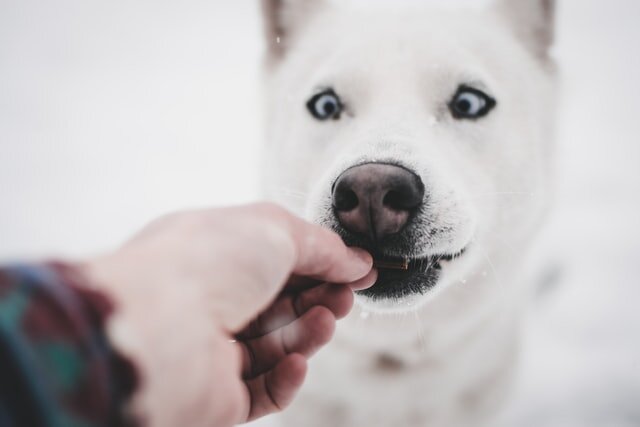4 points to remember to take dog biting seriously
Image by Adina Voicu from Pixabay
How serious is the problem?
Dog bites happen more often than you might think. The headlines are usually only taken by those very rare fatal cases or by very severe injuries. Don't get fooled by it. Every dog can bite and that includes your beloved French Bulldog, Labrador or Shih Tzu.
Many people think that dog bites happen only from dangerous dogs with irresponsible owners. It's often blamed on the dog - "there must be something wrong with him!" and it's presumed that the owner must have known about it. When in reality, the most common reaction for the dog bite is "He has never done anything like this before!" or "I would have never seen this coming!".
We are living in unprecedented times when we are flooded by so-called “pandemic puppies” but also many adult dogs in lockdown developed reactivity that you might not have seen before. Dogs need to be adjusted to the changes in the environment and they need to learn how the human world works. If all they've seen are empty streets and very few people, they can easily freak out by a person coming towards them, let alone a crowd. It's normal for dogs to be worried about people. The friendly dog picture that we have in mind is not an accurate description of all dogs. They need to learn to be ok with strangers and it's our responsibility to help them get there.
Image by GemmaRay23 from Pixabay
4 points to remember to take this problem seriously
1. Changes in the environment and circumstances can make your dog bite
Your dog just by the fact of having teeth has the potential to bite. Don't just assume your dog will never bite. It can be the case but there are unforeseen circumstances that can change your dogs' reactions. One of them is pain. If the dog is in pain, he can revert to biting the person who touched him. Another one can come with old age and the dog going blind and/or deaf which can cause a lot of confusion. He can get surprised by a sudden event and revert to biting. Yet, the most unthought-of circumstance is a change of the environment like moving to a new place, a construction site next door or any other major event that changes the routines for the dog. It can all affect his behaviour and increase the likelihood of developing new, never exhibited before reactions, including biting.
2. Being social doesn't mean your dog has to greet every stranger they meet
Your dog can choose to ignore a stranger! Socialising dogs doesn't mean pushing them to interact with every person they meet. It's far more important to have a good quality relationship rather than many artificial ones. Letting your dog ignore a stranger is a far better choice than forcing him to meet someone whom he feels worried about as that can lead to biting. Social dogs are not just the ones who greet and play with all people but rather ones who greet some and ignore others while staying calm and confident.
Photo by Kobi Kadosh on Unsplash
3. Always supervise your dog with children
Children are the most vulnerable group. You can't expect a child to know what to do and to read your dog or to respect your dogs' "no". It's your responsibility to supervise and to create positive relationships for both the child and the dog.
4. Learn dogs' body language so you can recognise the warning signs
Dogs’ body language is a massive subject and it's not necessarily easy to learn. We can easily misinterpret the sign when we anthropomorphise our dog. We can also have limited information and assume that one body language sign like tail wag only means one thing. It's context-specific. Even though it might take some time to start to understand it, learning it gives you long-lasting benefits. You will be far better equipped to see the signs that something isn't right which in turn will allow you to prevent bites from happening. That being said, there are very rare cases when the dog no longer shows the commonly seen body language signs before a bite. It usually is developed throughout this dogs' life. If the dog was punished for exhibiting those signs, he could learn to avoid showing them. It doesn't happen often but it is a possibility worth mentioning in case you come across a dog like that.
Photo by Kojirou Sasaki on Unsplash
Remember!
Prevention is better than a cure. Taking the matter seriously can save you from a very unpleasant situation. That being said, if your dog has a bite history, it’s not all lost! With the help of a professional, you can help him and prevent it from ever happening again.
Be a Superhero for your dog, he will love you for it!

















Loose leash walking has a lot of complexity to it. In reality, there are many behaviours that need to be taught but even more importantly every change in the environment can affect it! Here are a few tips and tricks that you can try while training your dog.